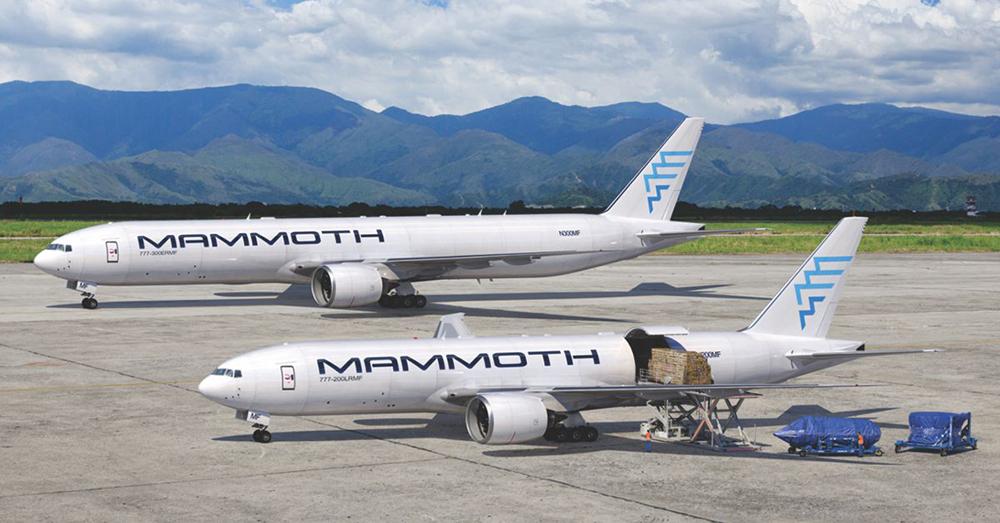New Freighter Conversion Company Targets Abundant 777 Feedstock

A new U.S.-based cargo conversion company is building up passenger-to-freighter (P2F) conversion programs for Boeing 777-200LR and 777-300ER aircraft. Mammoth Freighters has launched its supplemental type certificate (STC) development program plan with the FAA and expects to achieve approval in the second half of 2023.
Founded in December 2020 by two aviation industry executives with previous experience managing Boeing P2F conversion programs, Mammoth Freighters is taking advantage of an unprecedented level of feedstock to drive the program’s launch. It acquired 10 long-haul 777-200LRs from Delta Air Lines that became a casualty of the COVID-19 pandemic, according to Brian McCarthy, vice president marketing and sales, Mammoth Freighters.
“Although the 777 is going to rapidly move into the role of a converted freighter, we really were not anticipating this level of feedstock being available today because, pre-COVID, there was nothing that would indicate that the world would be ready to release this many -300 and -200 series aircraft, all pretty much within a couple years,” says McCarthy. “The abundance of feedstock is driving a replacement cycle, so out of roughly 350 aircraft that are classified as large freighters, 200 of them will be used as replacements and probably 150 larger freighters will be used for new growth in the market. We plan on going after our share of that type of market.”
According to Bill Tarpley, co-CEO of Mammoth Freighters, the aircraft types it is targeting for P2F conversions will be attractive due to greener performance specs as well. “All models of the 777 with GE90-110/115 engines are renowned for having superior operating economics compared to the aging 747-400 and MD-11 fleets and, as freighters, both the 777-200LR and 777-300ER have a bright future in supporting global air cargo demand,” says Tarpley. “With our modern design and existing feedstock of ten aircraft, Mammoth will provide express, e-commerce and general freight operators with highly affordable, flexible and purpose-built 777 freighters that burn less fuel and emit less carbon than the current freighter fleets.”
In addition to offering the acquired 777-200LRs for sale or lease, Mammoth Freighters will be offering asset owners the option to convert their own 777s to freighters. McCarthy says Mammoth is expecting the conversion process to take approximately 120 days for aircraft in good physical condition. It plans to have approximately six production lines that can accommodate around four aircraft each per year, although this may scale up to accommodate market demand.
Mammoth Freighters plans to partner with at least three MROs to perform the conversions and it is making its final decisions for which companies to partner with, which it expects to finalize in the next few weeks. It initially plans to have two conversion facilities in the U.S. but expects to eventually move into the Asia-Pacific region as well. It is also considering potential locations in the EMEA region.
The company will also pursue EASA and CAAC certification once it achieves STC approval from the FAA. It expects certification of its 777-200LRMF first, followed by approval of the 777-300ERMF shortly thereafter.
Design and engineering for Mammoth Freighters’ 777-200LRMF is in progress and its says tooling and parts are already in fabrication. Meanwhile, its conformity 777-200LR recently completed pre-modification test flights and will begin modification in the second quarter of 2022.
